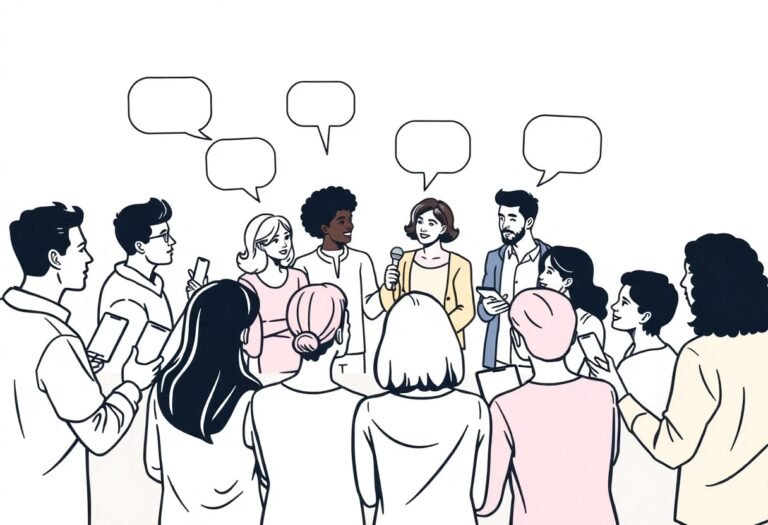Interviews with Therapists and Psychologists
Interviews with Therapists and Psychologists: It’s imperative for you to understand the perspectives of mental health professionals as you navigate your own psychological journey. Therapists and psychologists offer invaluable insights that can help you identify your emotional needs, while also providing strategies to enhance your mental well-being. In this blog post, you’ll discover key themes from interviews that reveal both the challenges and successes these professionals encounter daily, equipping you with the tools to make informed decisions about your mental health.
Key Takeaways:
- Therapists often emphasise the importance of building a strong therapeutic relationship to facilitate healing and growth.
- Many professionals encourage the integration of different therapeutic approaches tailored to the individual needs of clients.
- Practitioners advocate for self-help techniques that clients can use outside of therapy sessions, such as mindfulness and journaling.
- Active listening is a fundamental skill for therapists, allowing them to better understand clients and respond effectively.
- Therapists highlight the positive impact of destigmatising mental health issues, promoting societal acceptance and understanding.
The Role of Therapists and Psychologists
A therapist or psychologist plays a pivotal role in your mental health journey, providing guidance, support, and evidence-based strategies to help you cope with challenges. They create a safe and confidential space where you can explore your feelings, thoughts, and behaviours, ultimately working towards personal growth and improvement in your well-being.
Definitions and Distinctions
With various terms used interchangeably, understanding the distinctions between therapists and psychologists can enhance your clarity. While both professionals aim to support your mental health, psychologists typically hold a doctoral degree and are trained to conduct psychological testing, whereas therapists may have varying degrees of education and training, focusing more on counselling techniques.
Areas of Expertise
At the intersection of human experience and mental health, therapists and psychologists specialise in diverse areas, including anxiety, depression, trauma, relationships, and behavioural disorders. Their expertise allows them to tailor interventions that best fit your unique situation.
Plus, they often employ different therapeutic approaches to suit your needs, like Cognitive Behavioural Therapy (CBT) for anxiety or Dialectical Behaviour Therapy (DBT) for emotional regulation. It’s important to seek a professional whose expertise aligns with your specific concerns. You should also be aware that some therapists may focus on certain populations, such as children or the elderly, while others may specialise in issues like substance abuse or grief counselling. Understanding their areas of expertise will help you find the right support on your journey to mental wellness.
Interview Methodology
Any comprehensive study on therapists and psychologists demands a well-structured interview methodology. This approach ensures that you gather insightful and reliable data reflecting the professionals’ experiences and perspectives. By utilising a combination of strategies, you can obtain a well-rounded understanding of the mental health field from those who practice it.
Selection of Professionals
Across various disciplines within the mental health field, it is vital to choose a diverse group of professionals for your interviews. By including therapists from different backgrounds, specialities, and work environments, you will facilitate a richer dialogue and uncover a range of insights that can enhance your understanding of contemporary mental health practices.
Interview Techniques
Against a backdrop of various data collection methods, utilising effective interview techniques is vital for gathering meaningful information. Your approach should encompass open-ended questions that foster a conversational tone, encouraging interviewees to share their personal experiences and insights. This can lead to more authentic, thought-provoking responses.
This methodology allows you to research deeper into the therapists’ and psychologists’ practices, challenges, and triumphs. By combining structured and unstructured questions, you can achieve a balance that promotes genuine dialogue. Additionally, employing techniques such as active listening and follow-up questions can uncover nuanced perspectives you might not initially consider. Establishing a comfortable atmosphere will encourage your interviewees to open up, providing you with the most authentic and valuable insights into their experiences and viewpoints.

Key Insights from Experts
Not all therapists and psychologists approach mental health in the same way. Through interviews with various experts, you can gain a deeper understanding of their diverse perspectives and methodologies. Key insights reveal the importance of building a strong therapeutic alliance and tailoring treatment to fit each individual’s unique needs. Ultimately, understanding these insights can empower you to make informed decisions about your mental health journey.
Common Challenges Faced by Clients
Any individual seeking therapy encounters a range of common challenges. These can include feelings of vulnerability when sharing personal issues, difficulty in articulating emotions, and the challenge of maintaining motivation for change. Clients often struggle with trust and may find it hard to open up about painful experiences. Recognising these challenges is the first step toward navigating your mental health effectively.
Effective Strategies for Healing
Strategies for healing often involve a multifaceted approach that blends various therapeutic techniques. You might find value in engaging in practices like mindfulness, cognitive-behavioural strategies, and establishing a solid support network. These methods work to not only address immediate concerns but also build long-term resilience against future challenges.
But implementing effective strategies for healing requires commitment and awareness. Focus on developing a consistent practice of self-care, as it allows you to nurture your emotional health daily. Incorporate mindfulness techniques to cultivate a better awareness of your thoughts, enabling you to challenge negative patterns. Furthermore, establishing a supportive network of friends, family, or support groups can significantly bolster your healing process. By actively engaging in these strategies, you create a robust framework to promote your mental well-being.
The Importance of Therapeutic Relationship
Your journey in therapy can be profoundly influenced by the therapeutic relationship you develop with your therapist. This bond allows for open communication, understanding, and trust, all of which create a safe space for personal growth and healing. When you feel comfortable with your therapist, you’re more likely to engage authentically, fostering a deeper exploration of your thoughts and emotions that can lead to meaningful change.
Building Trust and Rapport
Below, we explore the necessary elements of building trust and rapport within the therapeutic context. Establishing a connection involves active listening, empathy, and consistent support from your therapist. When you feel seen and validated, it lays the groundwork for a collaborative partnership that is vital for successful therapeutic work.
The Impact of Relationship on Outcomes
Besides the emotional comfort, the quality of the therapeutic relationship can significantly affect your outcomes. Research indicates that a strong connection with your therapist can enhance treatment effectiveness and promote better mental health.
Due to the nature of the therapeutic alliance, you may experience improvements in your well-being, resilience, and ability to cope with challenges. This relationship fosters a sense of safety that allows you to address deep-seated issues, enhancing your motivation and commitment to the process. Additionally, when you trust your therapist, you are more likely to engage in open conversations, leading to a deeper understanding of your behaviours and thought patterns. Ultimately, a positive therapeutic relationship is not just about feeling good; it can lead to transformative outcomes in your life.
Current Trends in Therapy
Unlike traditional therapy methods that often focus on a singular approach, today’s landscape embraces diverse modalities, reflecting a growing understanding of mental health. Therapists and psychologists are increasingly incorporating factors such as culture, environment, and personal experiences into their practices. This shift is promoting personalised care and greater awareness of the various influences impacting an individual’s wellbeing, helping you navigate your unique journeys in mental health.
Teletherapy and Accessibility
To bridge gaps in access and convenience, teletherapy has emerged as a popular option, allowing you to engage in therapy sessions from the comfort of your home. This trend makes mental health support more available to those in remote areas or with physically demanding schedules, thus expanding the reach of therapeutic services and creating opportunities for more individuals to seek help.
Integrative Approaches
Along with teletherapy, integrative approaches in therapy are becoming increasingly common, as therapists draw on multiple techniques to address your specific needs more holistically. By combining therapy styles, such as cognitive-behavioural therapy with mindfulness practices, you can find a treatment plan that resonates with your personal experiences and preferences.
Further, integrative approaches consider mental, emotional, and physical well-being, emphasising the connection between mind and body. This holistic perspective allows you to explore diverse healing methods, including art therapy, mindfulness, and yoga, empowering you to develop a unique toolkit for managing stress and enhancing your overall wellness. With these practices, you can cultivate a deeper understanding of yourself, increase resilience, and improve your capacity to handle life’s challenges effectively.
Future Directions in Psychology
After engaging with leading therapists and psychologists, it’s clear that the field of psychology is at a pivotal moment. Innovative methods and advancements in technology are shaping new paradigms, ensuring the discipline remains relevant and effective in addressing the complex mental health challenges of the future. You can look forward to a more integrated approach that combines evidence-based practices with personalised therapy, creating a tailored experience for every individual.
Emerging Research
For you, staying updated on emerging research is crucial as it unveils groundbreaking insights into the human mind and behaviour. Studies focusing on neuroplasticity, the gut-brain connection, and the efficacy of digital therapies are transforming how mental health is approached. These findings may significantly impact treatment options and therapeutic outcomes in the years to come.
Evolving Practices and Techniques
Between traditional therapeutic models and modern approaches, the landscape of psychology is continually evolving. You will find that practices now emphasise adaptability and responsiveness to individual needs, integrating technology, mindfulness, and holistic approaches into therapy.
Research indicates that the integration of digital tools in therapy, such as apps for mental health tracking and virtual reality experiences, significantly enhances engagement and outcomes for clients. Additionally, the use of mindfulness techniques has been shown to improve emotional regulation and reduce stress. As these practices evolve, you will likely see a greater emphasis on a personalised approach that includes client feedback and collaborative goal-setting, ensuring that therapy is not only effective but also empowering for you. The future of psychology is bright, as these innovations promise to create a more inclusive and accessible mental health landscape.
To wrap up
Drawing together insights from interviews with therapists and psychologists allows you to gain a deeper understanding of the mental health field and the diverse approaches these professionals employ. By engaging with their experiences and expertise, you can enhance your knowledge of various therapeutic techniques and the importance of client-therapist relationships. This knowledge equips you with the tools to navigate your own mental health journey more effectively, fostering personal growth and emotional well-being.
Interviews with Therapists and Psychologists: FAQ
Q: What types of therapists and psychologists can I expect to interview?
A: When interviewing therapists and psychologists, you might encounter a range of professionals specialising in different areas. This includes clinical psychologists, counselling psychologists, licensed professional counsellors, marriage and family therapists, and social workers. Each professional may offer unique perspectives based on their educational background and practical experience, addressing issues such as anxiety, depression, relationship struggles, trauma, and more.
Q: How can interviews with therapists and psychologists be beneficial for the audience?
A: Interviews with mental health professionals can provide valuable insights into therapeutic practices, common mental health challenges, and coping strategies. They can demystify the therapeutic process, helping the audience understand what to expect during therapy sessions. Additionally, sharing real-world experiences and expert advice can inspire and motivate individuals seeking help for their own mental health issues.
Q: What questions should I consider asking during interviews?
A: It’s beneficial to prepare thoughtful questions that promote engaging discussions. Some examples include: What inspired you to become a therapist? What are the most common misconceptions about therapy? Can you share a success story that highlights the effectiveness of therapy? What advice would you give to someone considering therapy for the first time? How do you approach treatment for different mental health conditions? Tailoring questions to the therapist’s specialities will yield even more insightful responses.
Q: How can I find reputable therapists and psychologists for interviews?
A: To find qualified professionals for interviews, consider utilising online directories such as Psychology Today, TherapyDen, or local mental health organisations. Networking within the mental health community can also yield connections to professionals willing to share their experiences. Additionally, social media platforms and professional associations may provide information about experts looking to share their knowledge and insights through interviews.
Q: What should I do to create a comfortable environment for the interview?
A: Ensuring a comfortable environment for the interview is key to fostering open communication. Choose a quiet, private space where interruptions are minimal. Be respectful and create an inviting atmosphere by explaining the purpose of the interview and providing reassurance about confidentiality and the way the information will be used. Also, consider allowing the therapist or psychologist to set the tone for the conversation, as this will help them feel more at ease while sharing their insights.






